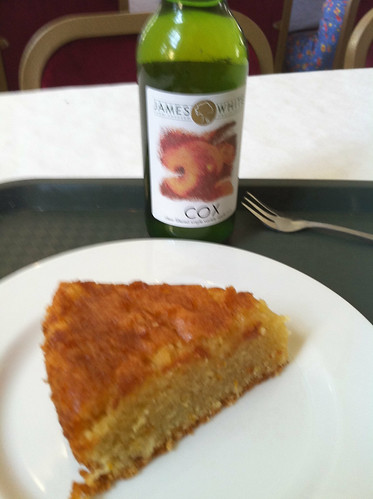The Great Gatsby is told in the first person from the perspective of a man named Nick Carraway, a young man who has recently moved to the suburbs of New York after the First World War at the start of his career selling bonds. It is an intriguing insight into a way of life that I didn't know much about and I enjoyed being drawn into a world which was partly modern, and partly still harked back to an almost costume-drama-style world where (rich) women draped themselves elegantly over Chaises Longues, were prone to fainting and took great care over their appearance.
Nick lives next to a man named Jay Gatsby, a mysterious man, whose name was on everyone's lips in the summer that Nick describes for holding the most amazing parties where everyone who was anyone went, even if they did not know the host. The story revolves both around Nick's unravelling the mystery behind Gatsby, and the story of some friends of his, their marriage, and the life they lead, and the way these two aspects eventually interweave.
After a slow start, I felt fairly engaged by the novel and found myself wanting to know what happened. My overriding impression now that I've finished it, however, is one of distaste for the world that Nick was discovering. One where rich people attend glamorous parties, live in lavish houses, but seem dissatisfied with their lives, have extra-marital affairs, occasionally make their money in less-than-above-board ways and ultimately don't care about one another.
Feeling that I may have missed something, or perhaps just lacking confidence in my own interpretation, I turned to the web to see what other people had to say. My first port of call, as an introduction: the first paragraph of the Wikipedia page about the book describes it as 'a critique of the American Dream.' It continues 'Although Fitzgerald, like Nick Carraway in his novel, idolized the riches and glamor of the age, he was uncomfortable with the unrestrained materialism and the lack of morality that went with it, a kind of decadence.' I read the novel with no preconceived ideas and no knowledge about the author or what the book was about. It seems, from a brief skim of Wikipedia and an American homework website (apparently the book is frequently studied by school students in America) that my reading of the book was largely in keeping with the themes that others have identified, and that Scott Fitzgerald intended his readers to dislike and question the morals of this post-war prosperous world of plenty in America in the 1920s.
Reading about themes and symbolism in a book I've just read rather made me miss studying literature. I struggled with French literature during my degree because I never really 'got' the dissecting of a novel that I had enjoyed, until my final year when something clicked. Now, with the benefit of hindsight and a more mature perspective, I'm starting to appreciate it again. I'm hoping that reading the other four classic novels will continue to remind me of the pleasure and satisfaction that can be gained from reading 'proper' literature again.
My last point on this novel is one about language. I had forgotten in recent years when I've mostly read fairly trashy chick-lit which is perfect for short train commutes, the way really 'good' literature can be delicious in its use of language and description.
I folded over a few pages in The Great Gatsby where the author used turns of phrases which I really liked. These are some of my favourite descriptions:
- The first description of Gatsby's smile: 'It was one of those rare smiles with a quality of eternal reassurance in it, that you may come across four or five times in life. It faced - or seemed to face - the whole eternal world for an instant, and then concentrated on you with an irresistible prejudice in your favour. It understood you just so far as you wanted to be understood, believed in you as you would like to believe in yourself, and assured you that it had precisely the impression of you that, at your best, you hoped to convey.' (p. 54, Penguin Popular Classics, 1994)
- The description of why Carraway enjoyed New York struck a chord with me as it is also a reason I love London: 'the racy, adventurous feel of it at night, and the satisfaction that the constant flicker of men and women and machines gives to the restless eye.' (p. 63)
- I liked the image conjured up by this metaphor: 'His right hand suddenly ordered divine retribution to stand by.' (p. 71)






